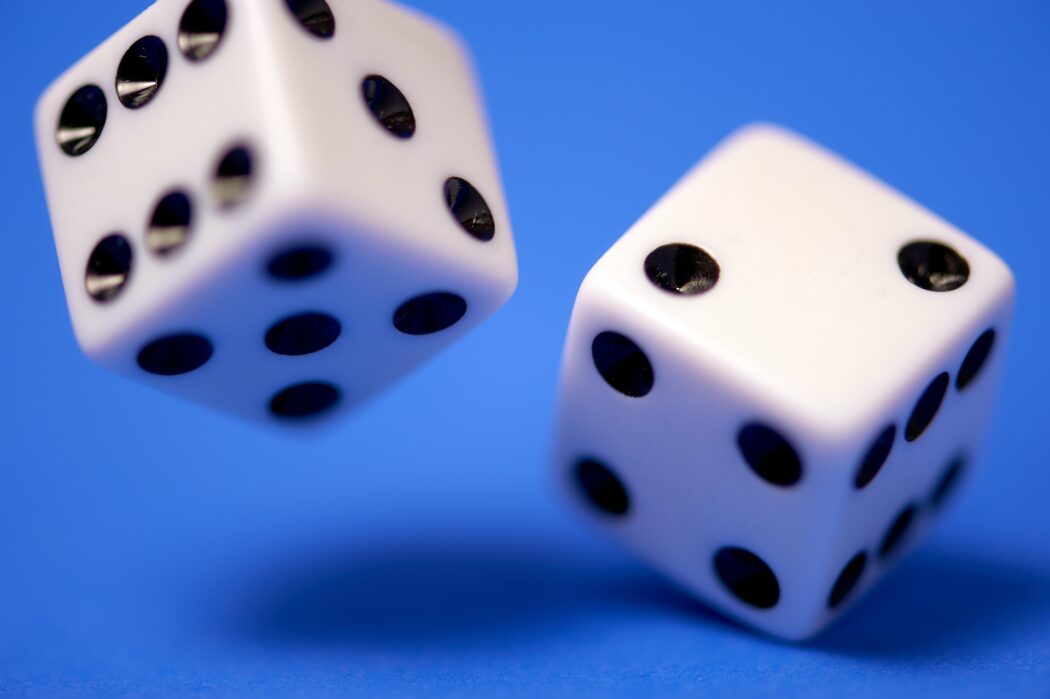Gamblers Fallacy

Gamblers Fallacy is a cognitive bias that affects the way we make decisions.
Now what is a cognitive bias?
Cognitive bias is a systematic error in making judgments and thinking that occurs when people are processing and interpreting information in the world around them that affects the decisions that they make. Cognitive biases are often a result of your brain’s attempt to simplify information processing
We would like to believe we are objective and rational, and generally make good decisions in our lives. Unfortunately, this is not always true, we are all prone to using heuristics and having cognitive biases which lead us to make irrational and incorrect decisions.
In this article we look at one bias, Gamblers fallacy. Let’s find out what it is and how it affects us.
Gamblers Fallacy
I am going to toss a coin. Yesterday when I tossed this coin I got tails seven times and heads only twice. What are the chances I will get tails again?
The chance today is still 50/50, but most people will get influenced by my past experience of getting tails seven times out of nine and answer tails.
The gambler’s fallacy is a failure to recognize the independence of chance events, leading to the mistaken belief that one can predict the outcome of a chance event on the basis of the outcomes of past chance events.
The most famous example of the gambler’s fallacy happened on the August night of 1913 at the Monte Carlo casino. The roulette wheel landed on black 26 times. Resulting in a lot of people losing money as they kept betting on red. Since then it has also been named the “Monte Carlo Fallacy”
Why does it happen
Well firstly, we don’t like randomness. As a result, we try to rationalize it by finding patterns in the random phenomena– even when they aren’t actually related.
Second, as we saw in the representativeness heuristic we assume a few cases to be more representative of the population at large than it actually is. Ignoring the importance of sample size.
Third, we overestimate the fairness of chance. We believe that chance works in balance, if something has been positive for some time we believe it will soon be negative and vice versa.
Situations
Gamblers fallacy doesn’t just affect people who gamble or buy lottery tickets, they affect us all as we try to make predictions of uncertain future events by looking at past events which were similar.
Stock markets: According to economists Hersh Shefrin and Meir Statman, investors tend to hold onto stocks that have depreciated and sell stocks that have appreciated. Keeping the loosing stocks for longer than required and selling the good ones early. Gamblers fallacy comes into play when they do so believing the rising stock will crash soon and the loosing one is likely to rise again.
Relationships: This is often seen in our assessments that current and future relationships will follow the negative/positive patterns of our previous ones. Which can lead us to make judgements that ignore the situation we are in.
Career: Thoughts like; we will fail our next interview or venture because our past ones were not successful, are also part of the gamblers fallacy. We ignore several other factors and possibilities, while only focusing on our past failures, and regard future failures as inevitable.
Combating
We have to first understand the fallacy in our logic and assess the events in our lives through critical thinking. One way to do that is by thinking through the actual process by which the event occurred will help us realize that past events don’t play a role in future ones. For instance, in a casino, you guessed correctly that the dice will turn to four, ask yourself how the dice turned to four and the process with which your reached the successful conclusion. This should help you view it as a random event rather than a pattern.
Treat each event as a beginning and not a continuation to previous events. Each interview, relationship etc… is a new territory. The situation is absolutely different from the last one. Focus on the differences and see each situation in a fresh perspective.
Lets take chess as an example, you may have been playing it all your life, you may have watched all the tournaments, studied different moves but each time a chess game is played, after each player has moved a piece 5 times, there are 69,352,859,712,417 possible games that could have been played. You may know the pieces, the board, the plays but each time you sit to play you might learn something new. So try and approach each situation, as new and a learning opportunity.
We have taken a look at how “Gamblers Fallacy” affects us. But, there are many more biases that can overwhelm our rational thought processes. So read on to other biases to make more intentional and informed choices.
References
Gambler’s fallacy https://dictionary.apa.org/gamblers-fallacy
“Why do we think a random event is more or less likely to occur if it happened several times in the past” https://thedecisionlab.com/biases/gamblers-fallacy/
Tversky, A., & Kahneman, D. (1974). Judgment under Uncertainty: Heuristics and Biases.
Hersh Shefrin, Meir Statman, (1984). The Disposition to Sell Winners Too Early and Ride Losers Too Long: Theory and Evidence: Discussion. The Journal of Finance, https://www.researchgate.net/publication/313248569_The_Disposition_to_Sell_Winners_too_Early_and_Ride_Losers_too_Long
The Gambler’s Fallacy: What It Is and How to Avoid It https://effectiviology.com/gamblers-fallacy/
Roney, C. J.; Trick, L. M. (2003). “Grouping and gambling: A gestalt approach to understanding the gambler’s fallacy”. Canadian Journal of Experimental Psychology. https://www.researchgate.net/publication/10693918_Grouping_and_gambling_A_Gestalt_approach_to_understanding_the_gambler{fbc85f0ae801488f0ab9cb320830b01a66502721817dc3e345baab433c08b7db}27s_fallacy
Shannon Number https://en.wikipedia.org/wiki/Shannon_number

